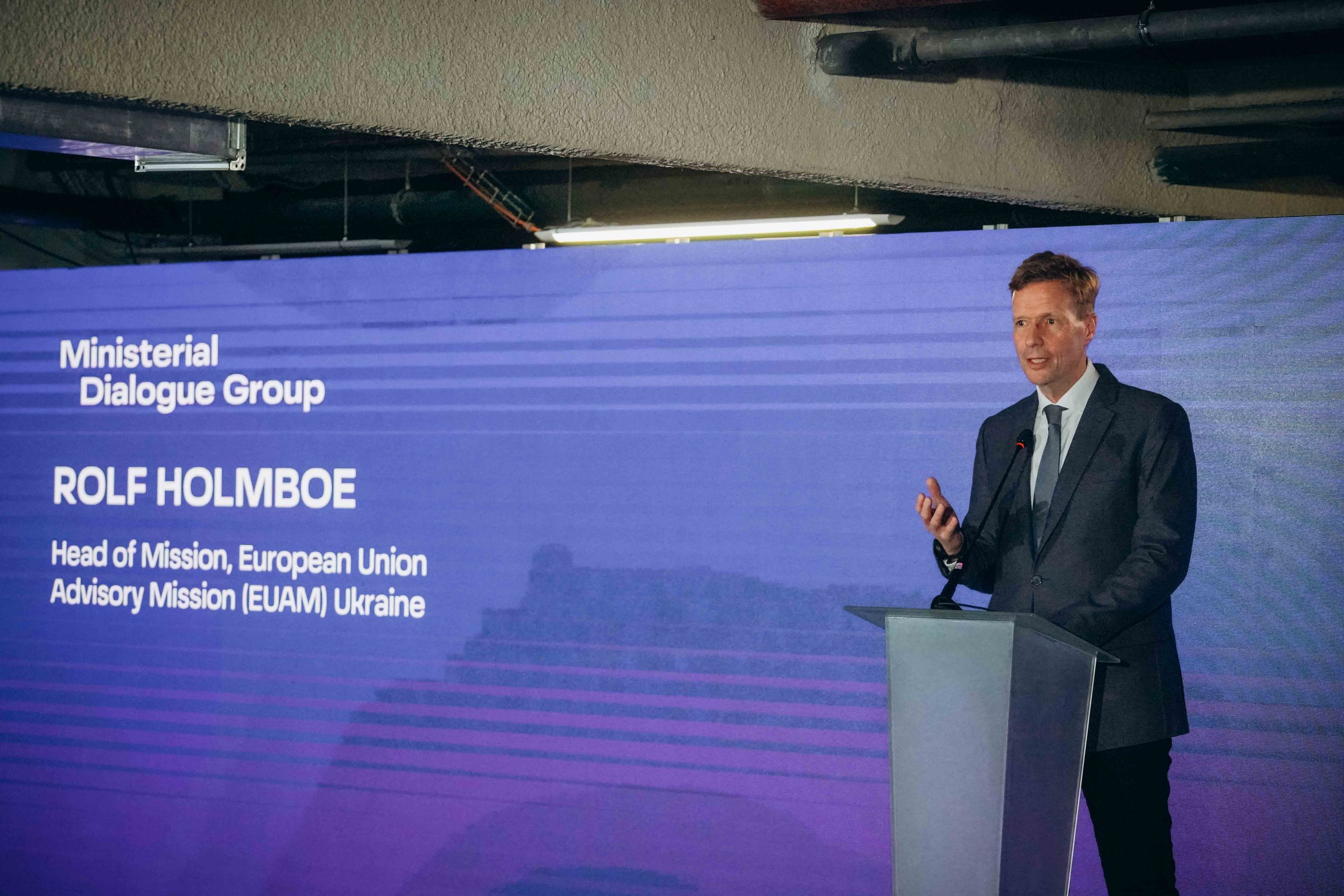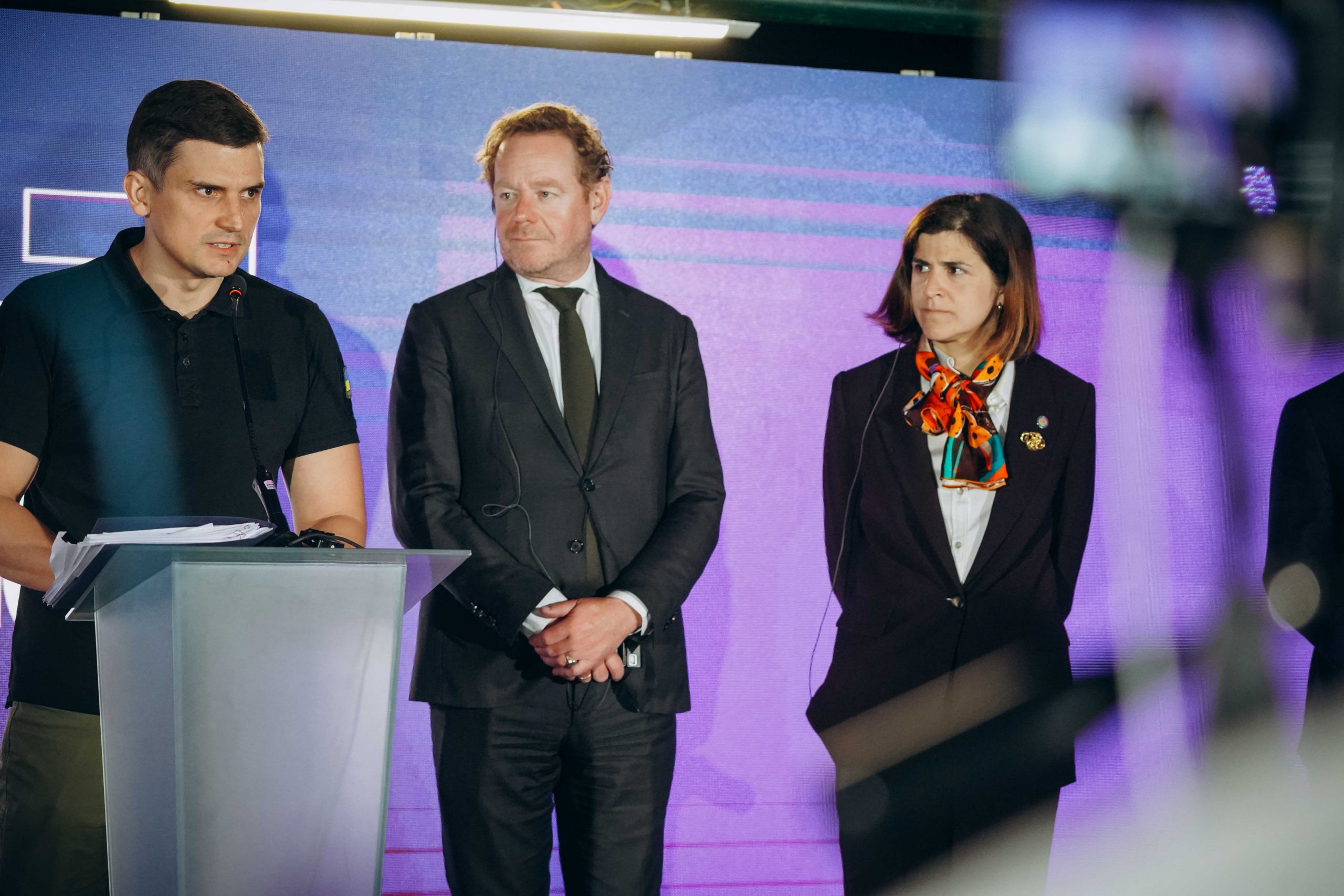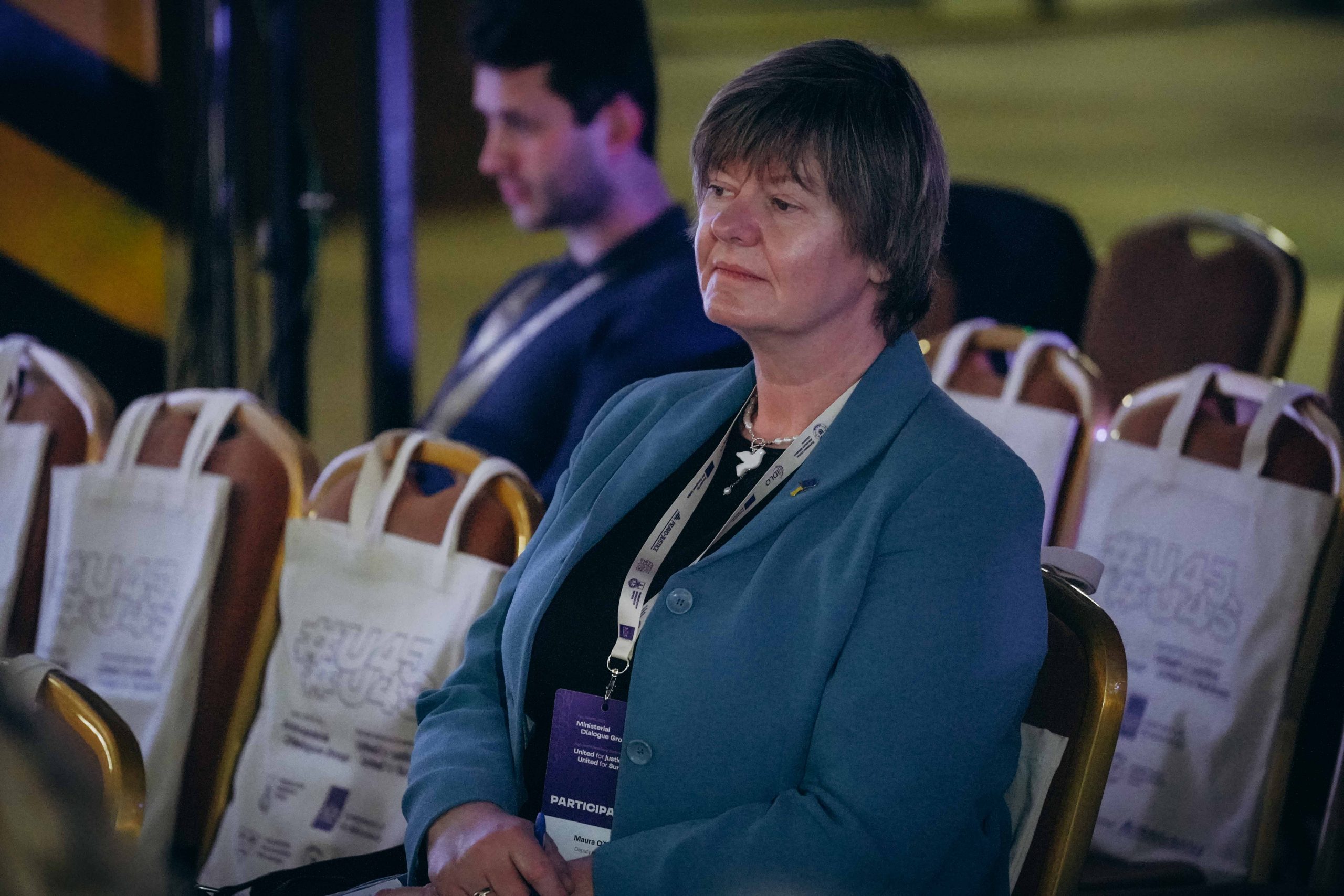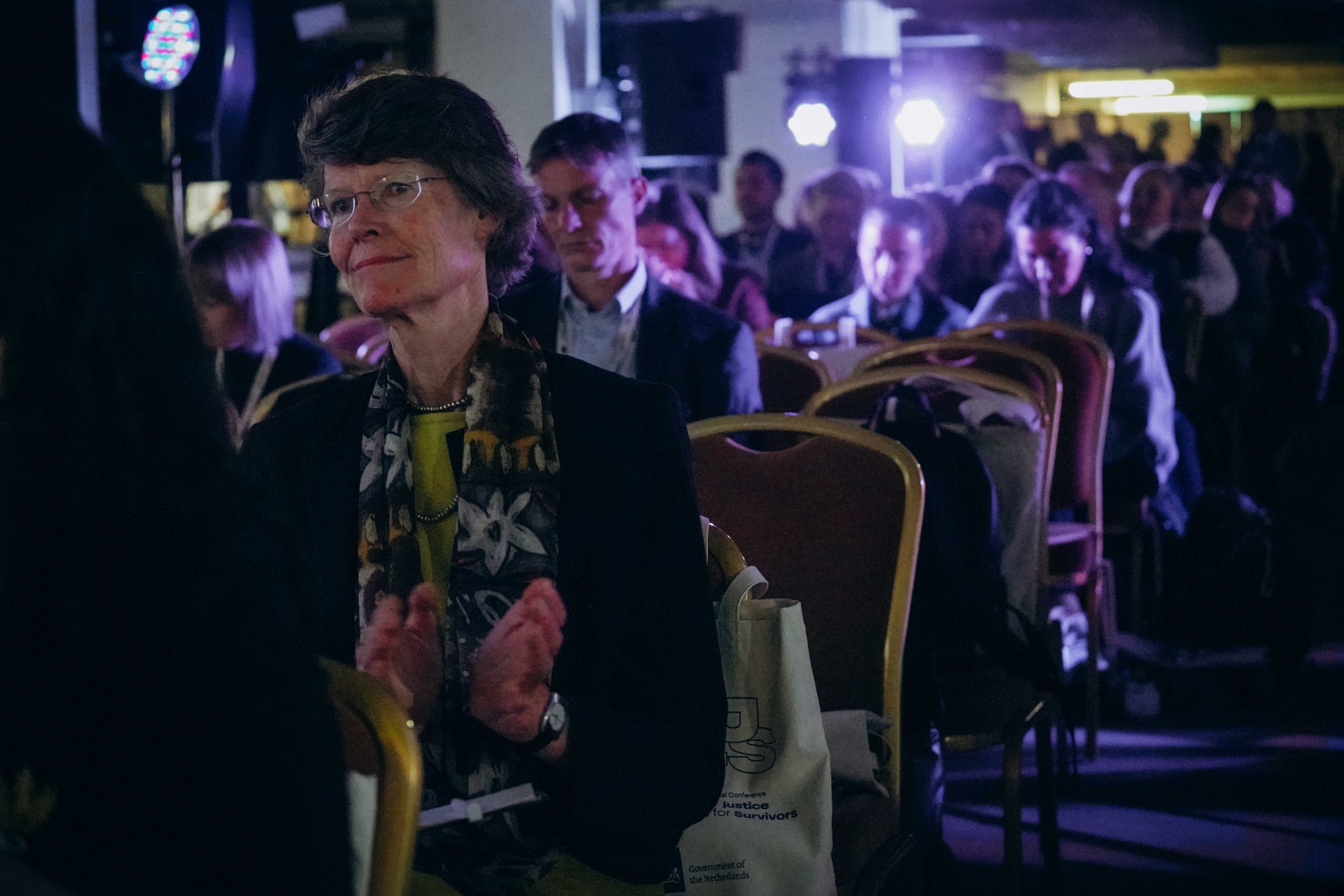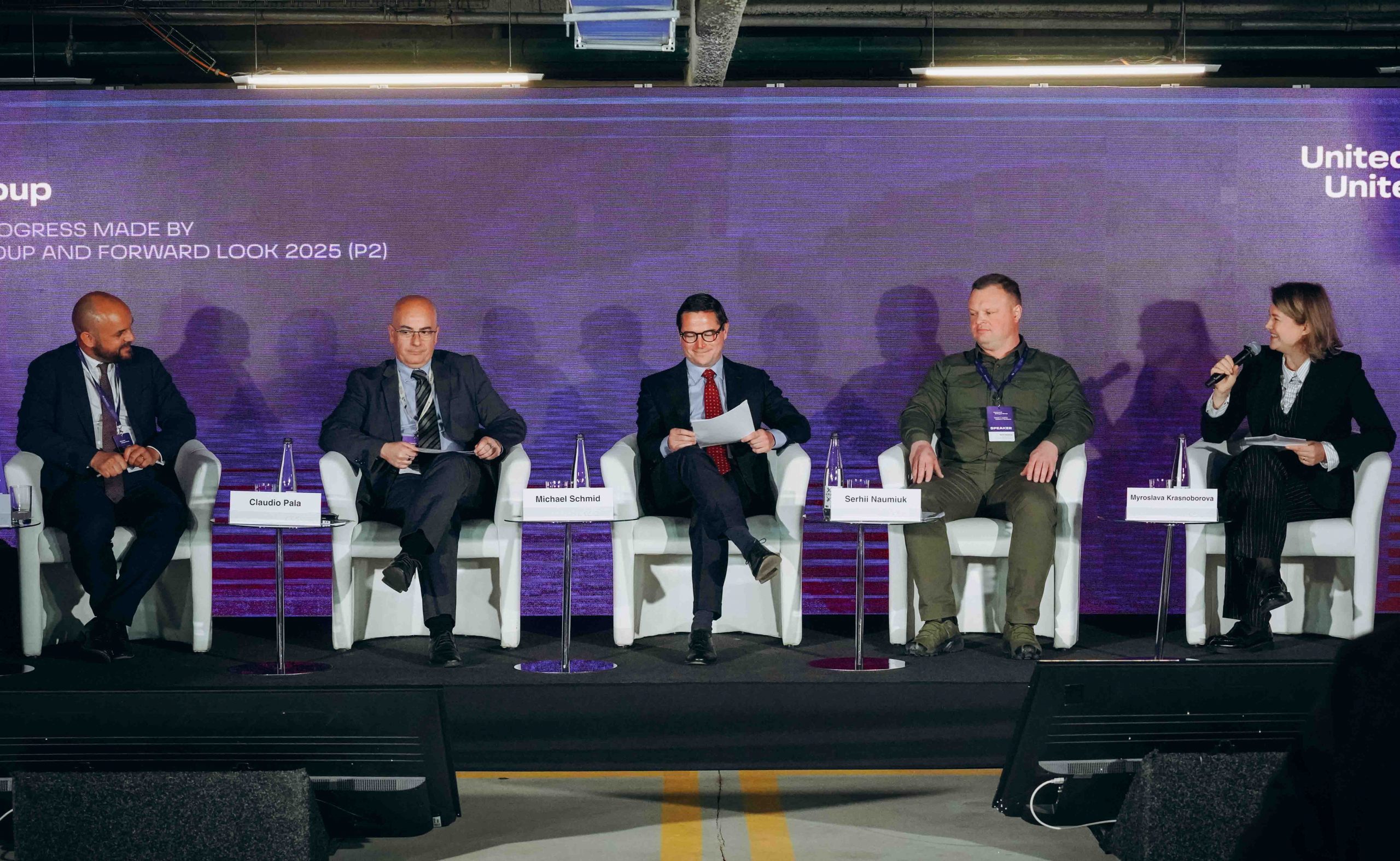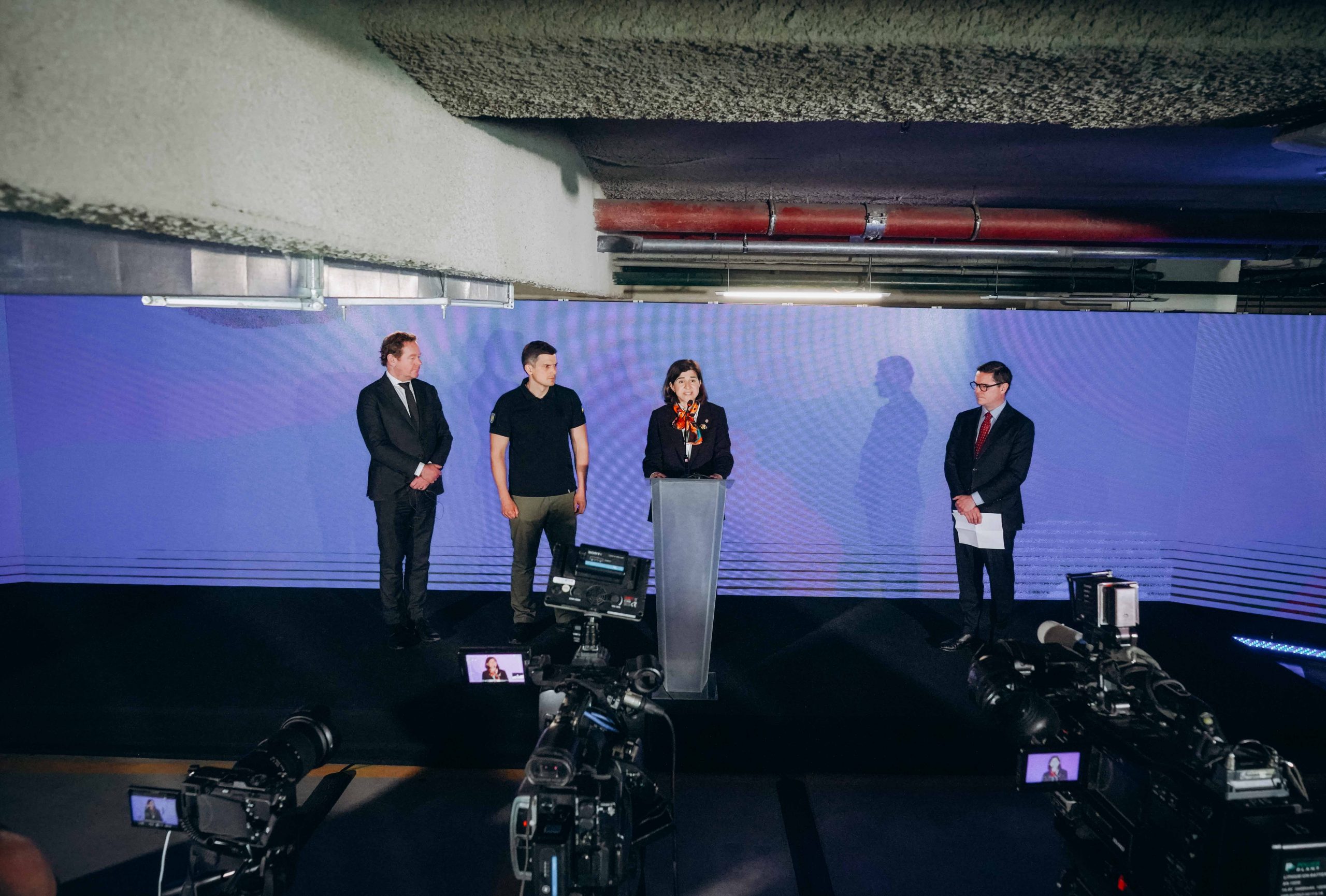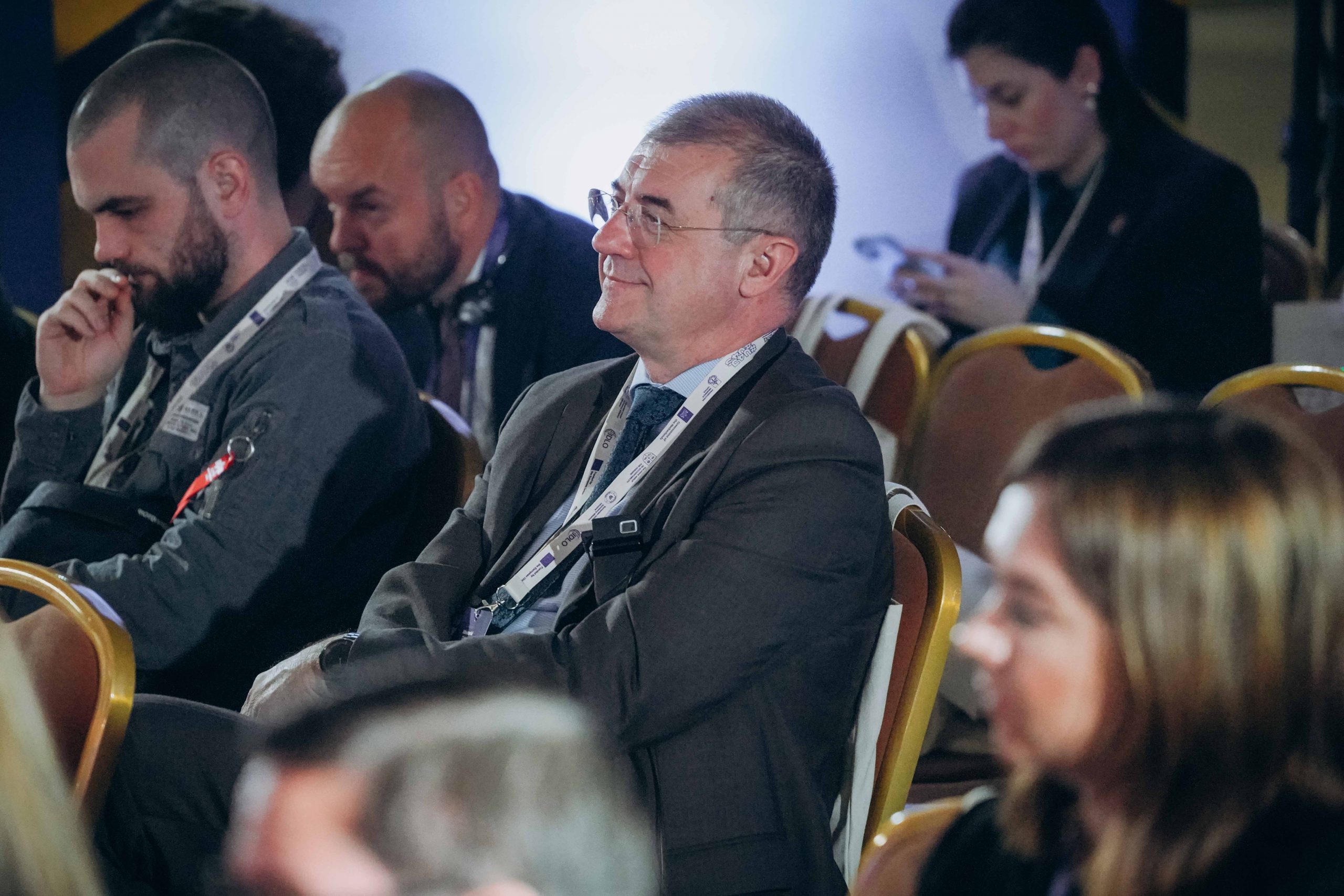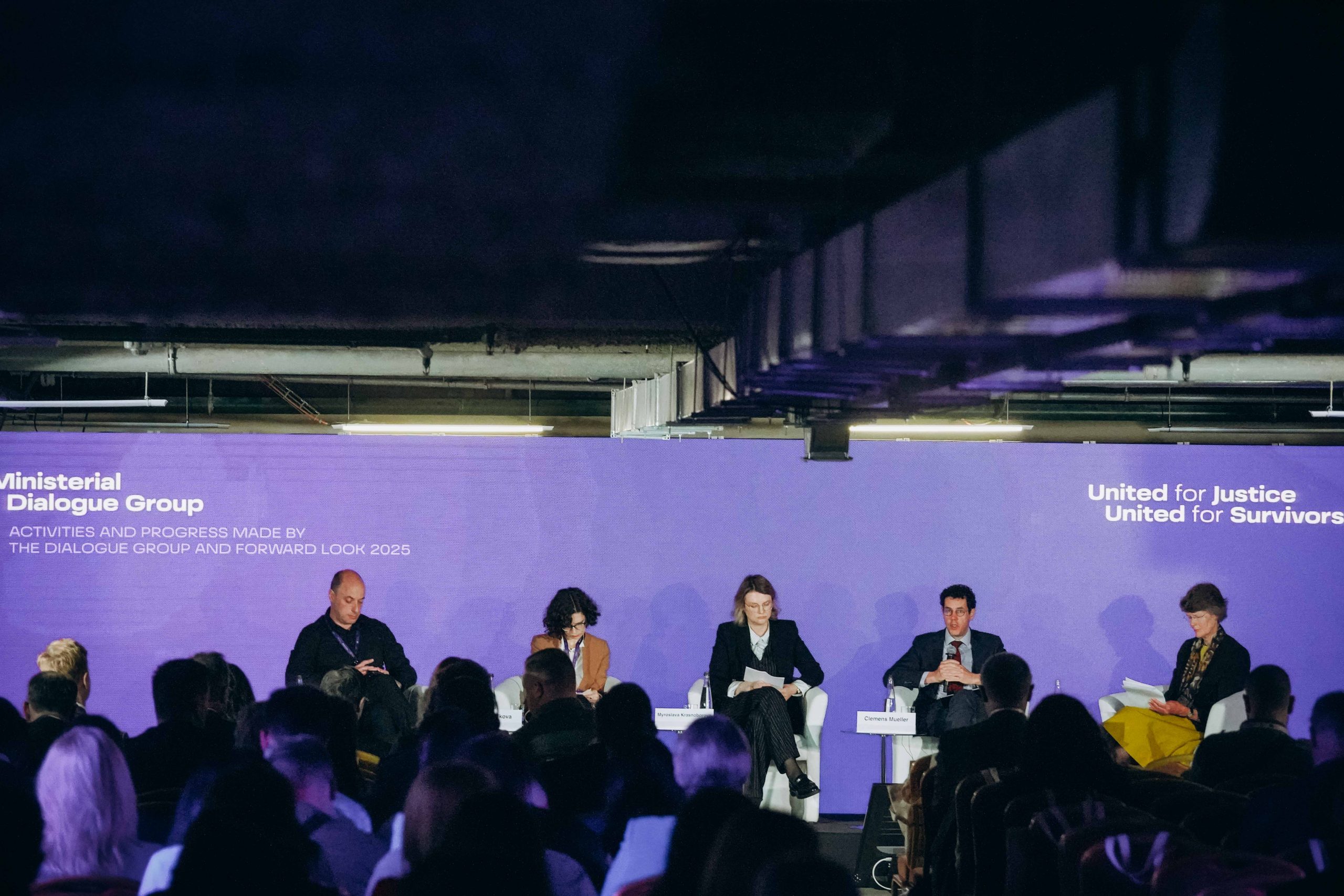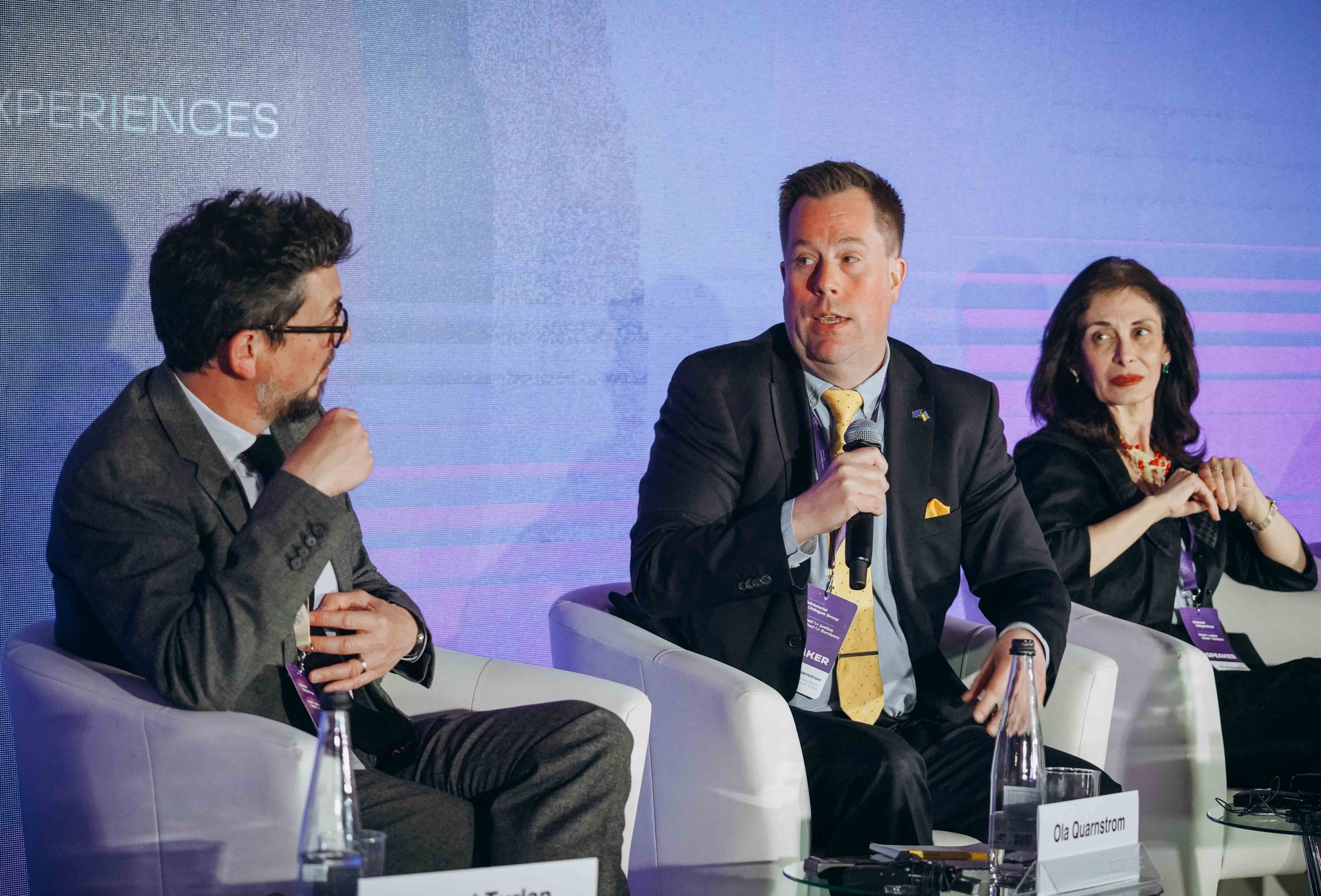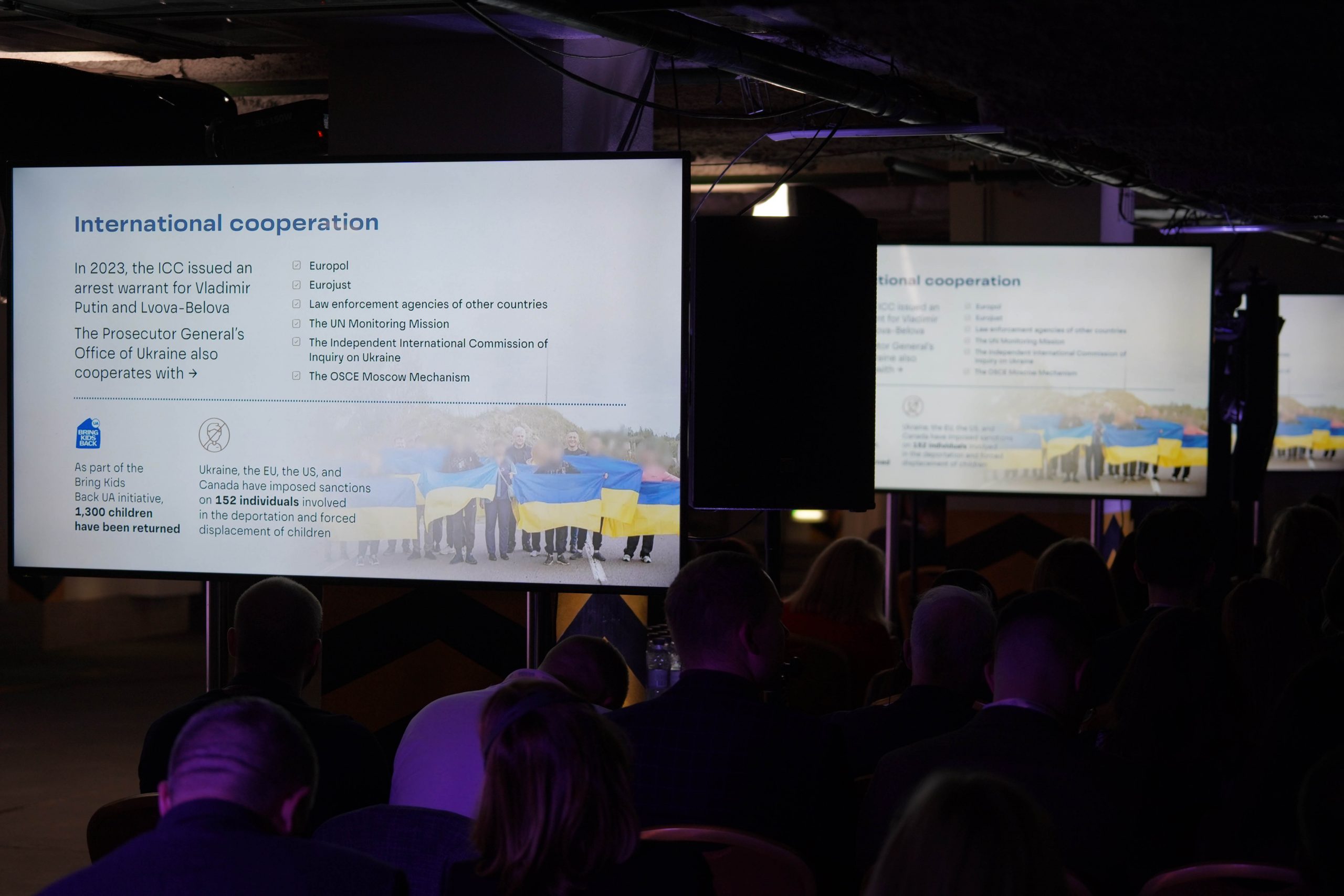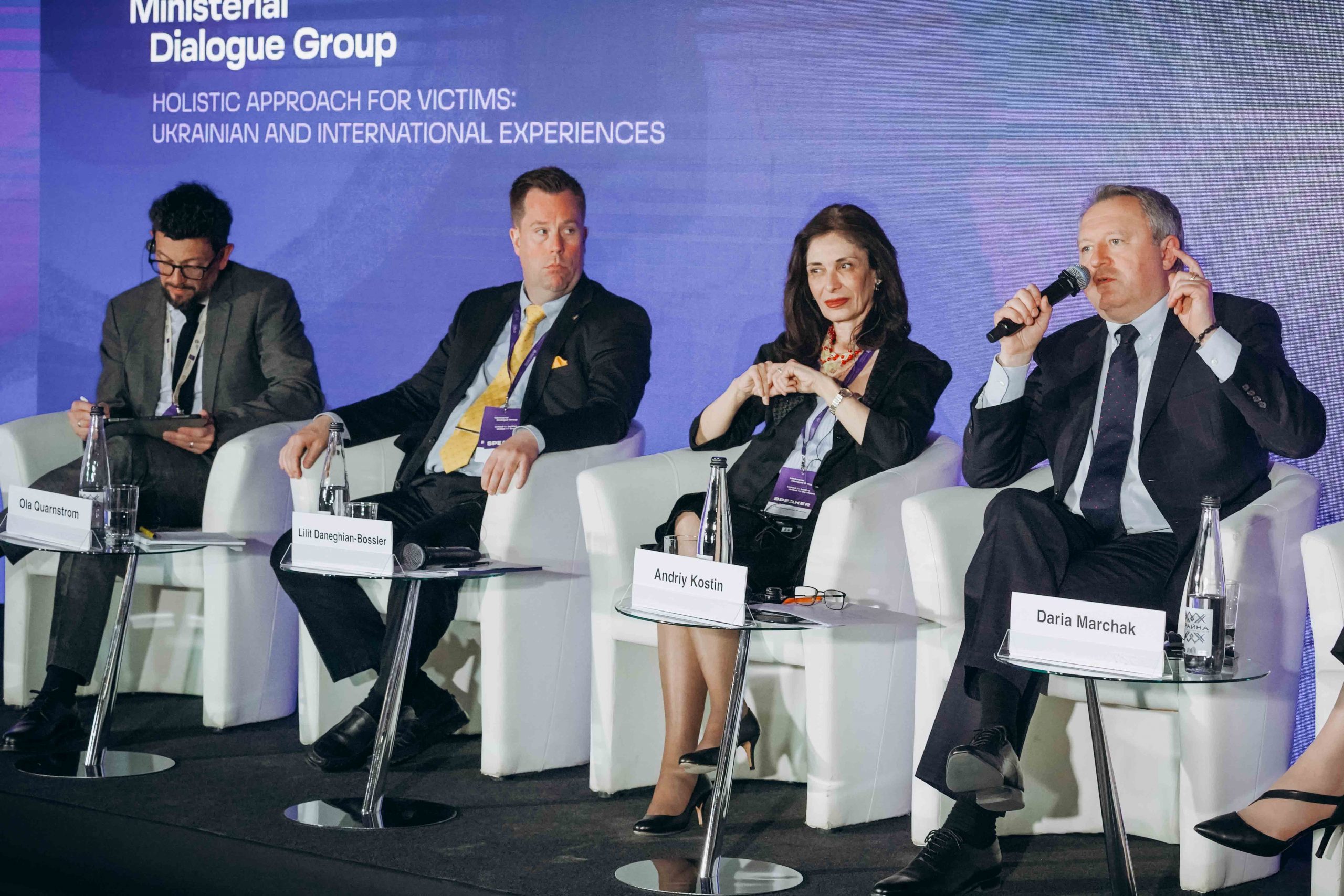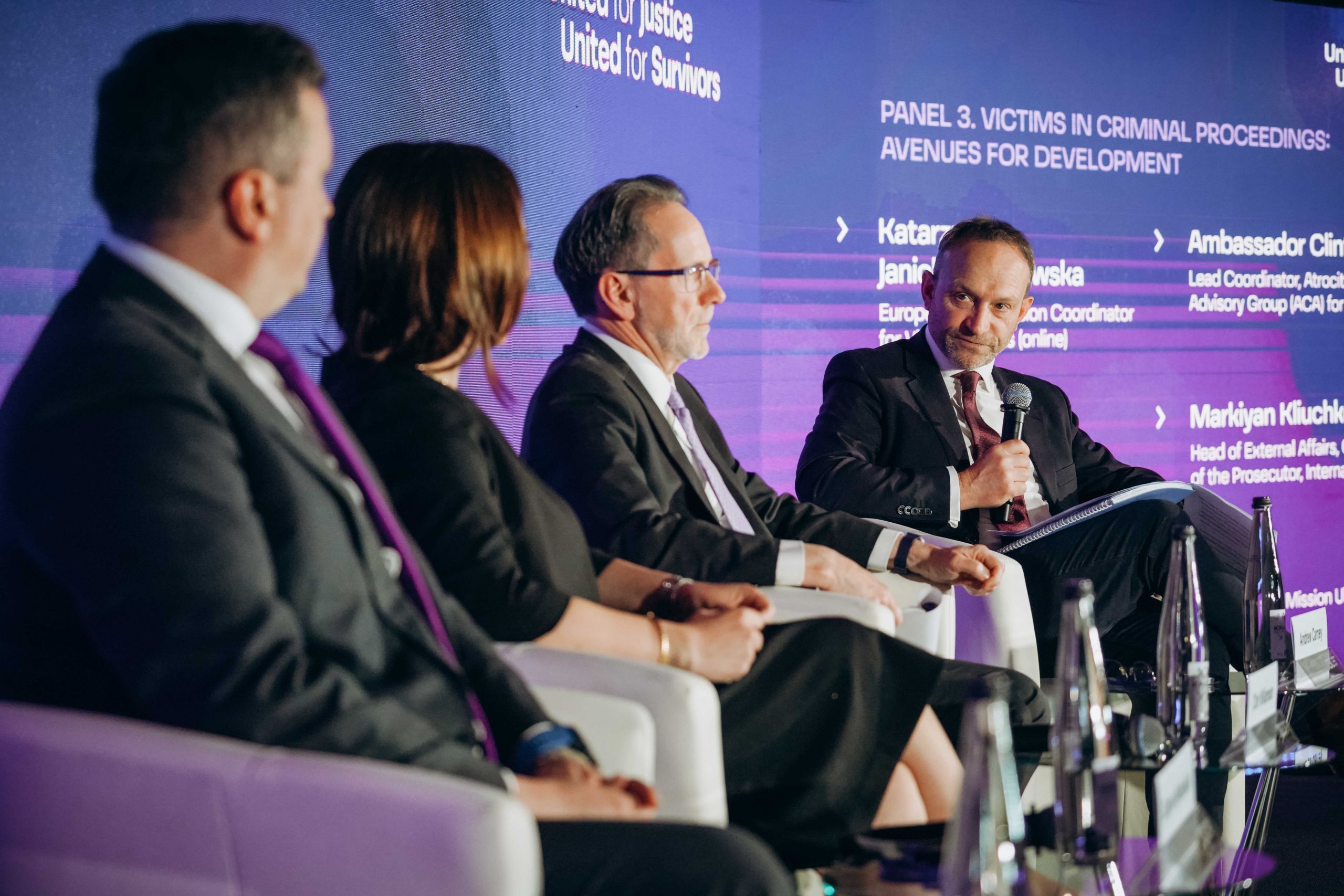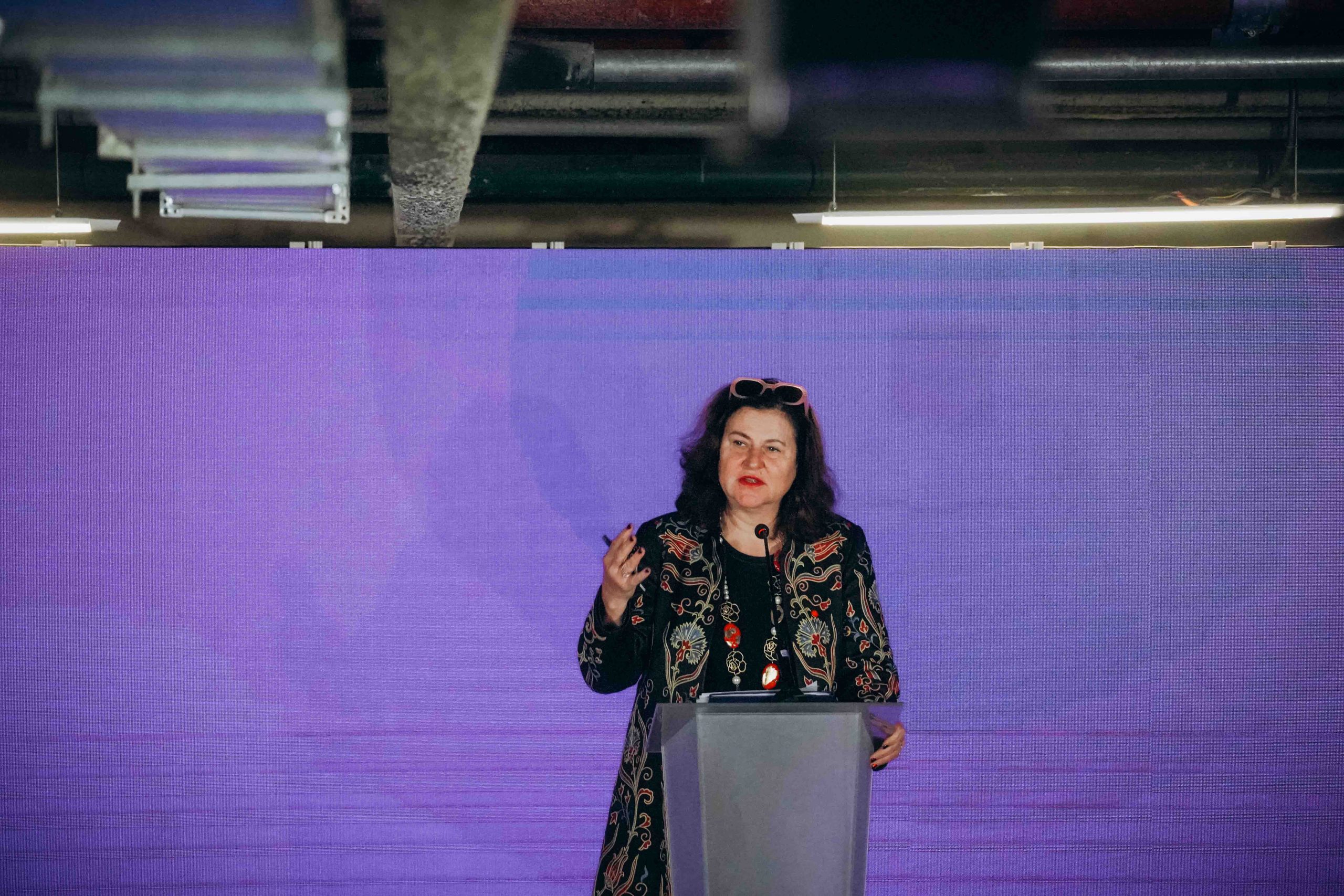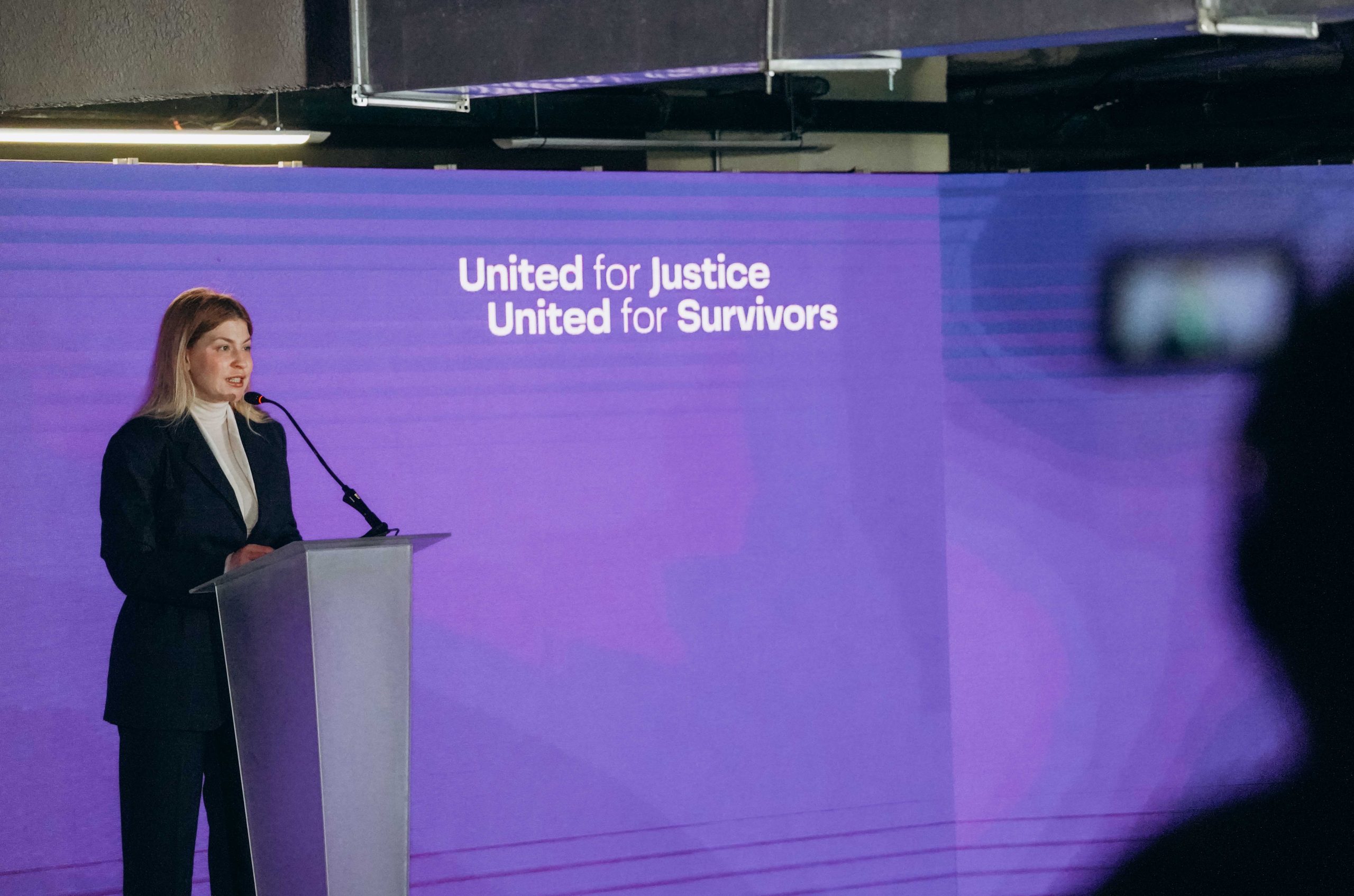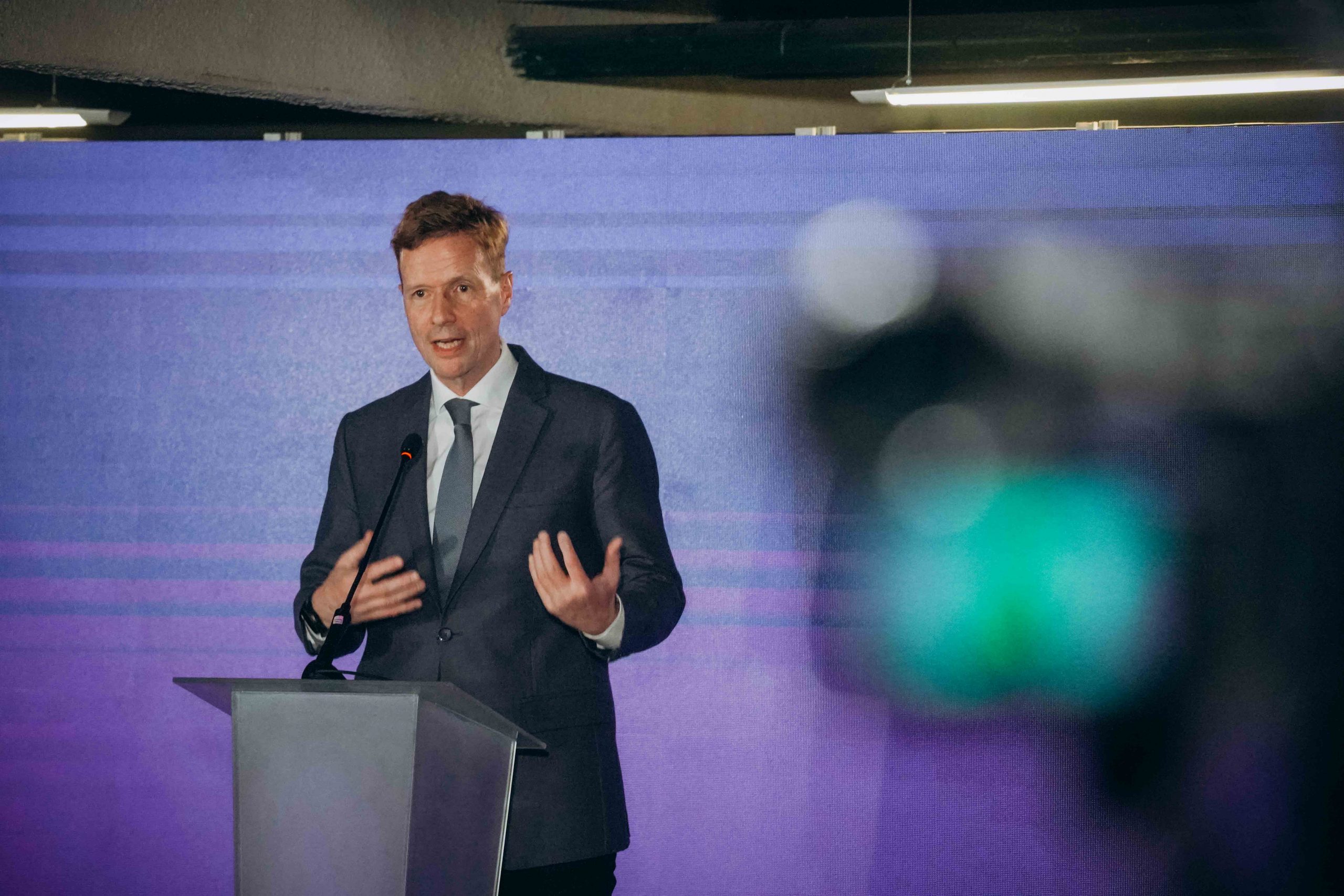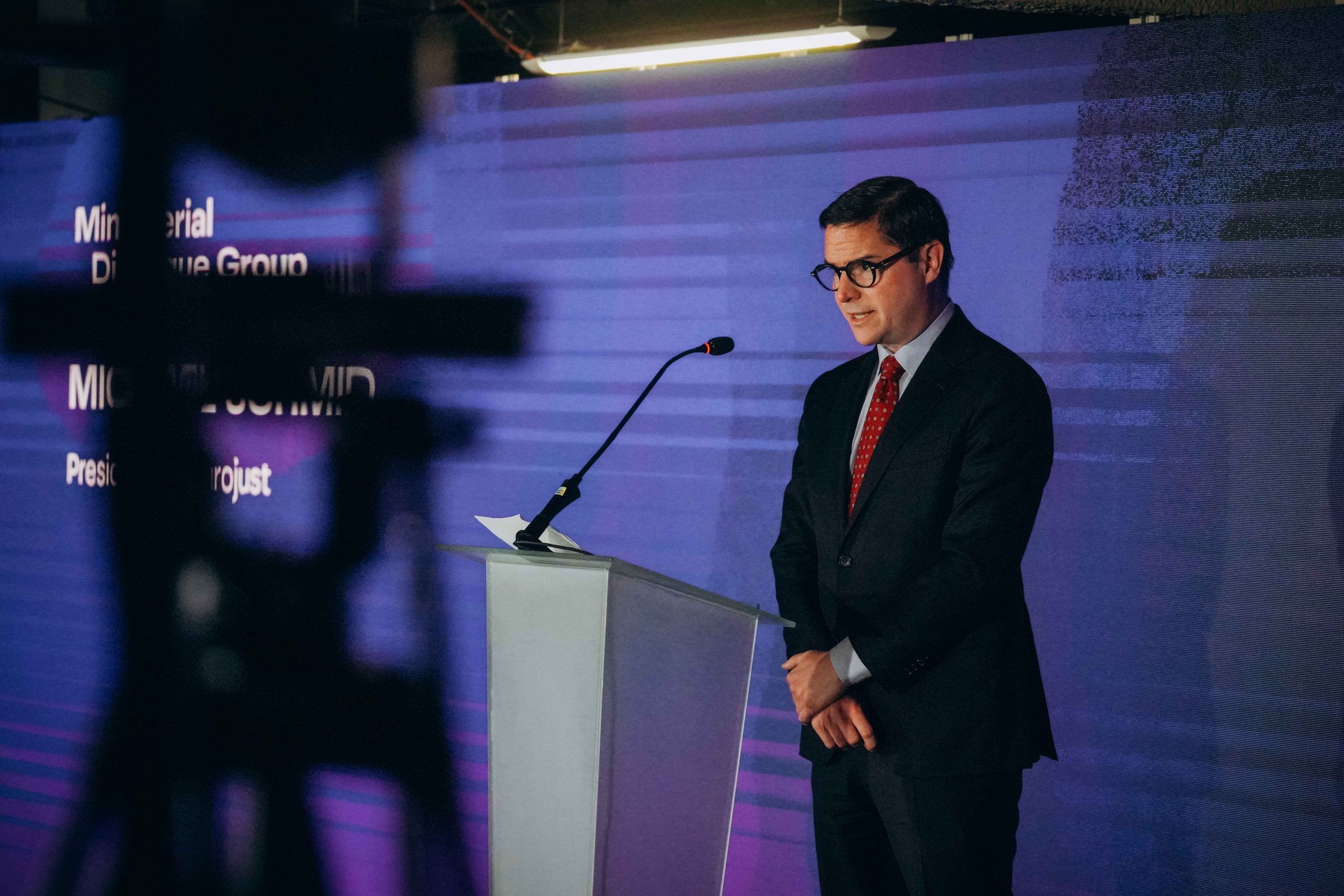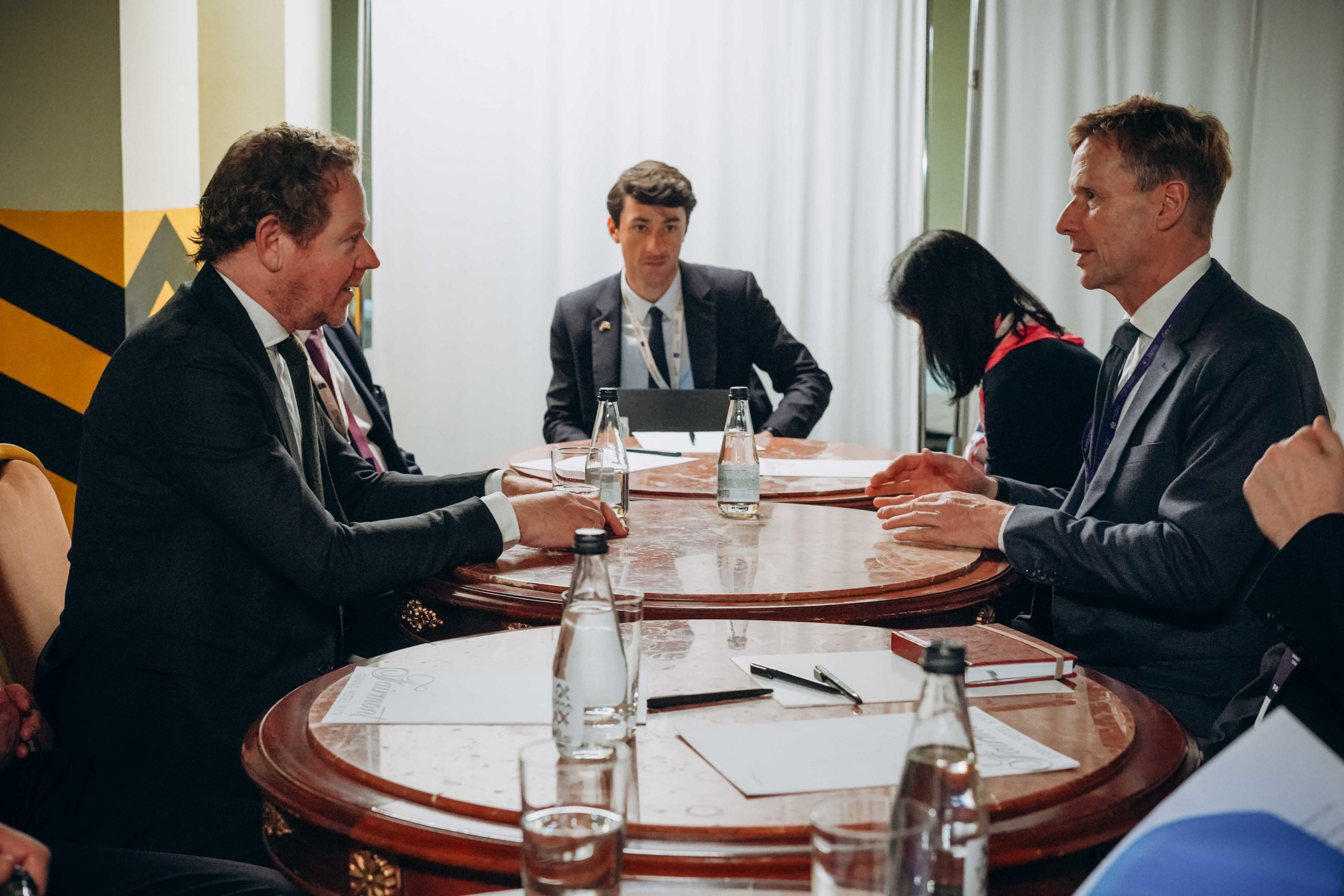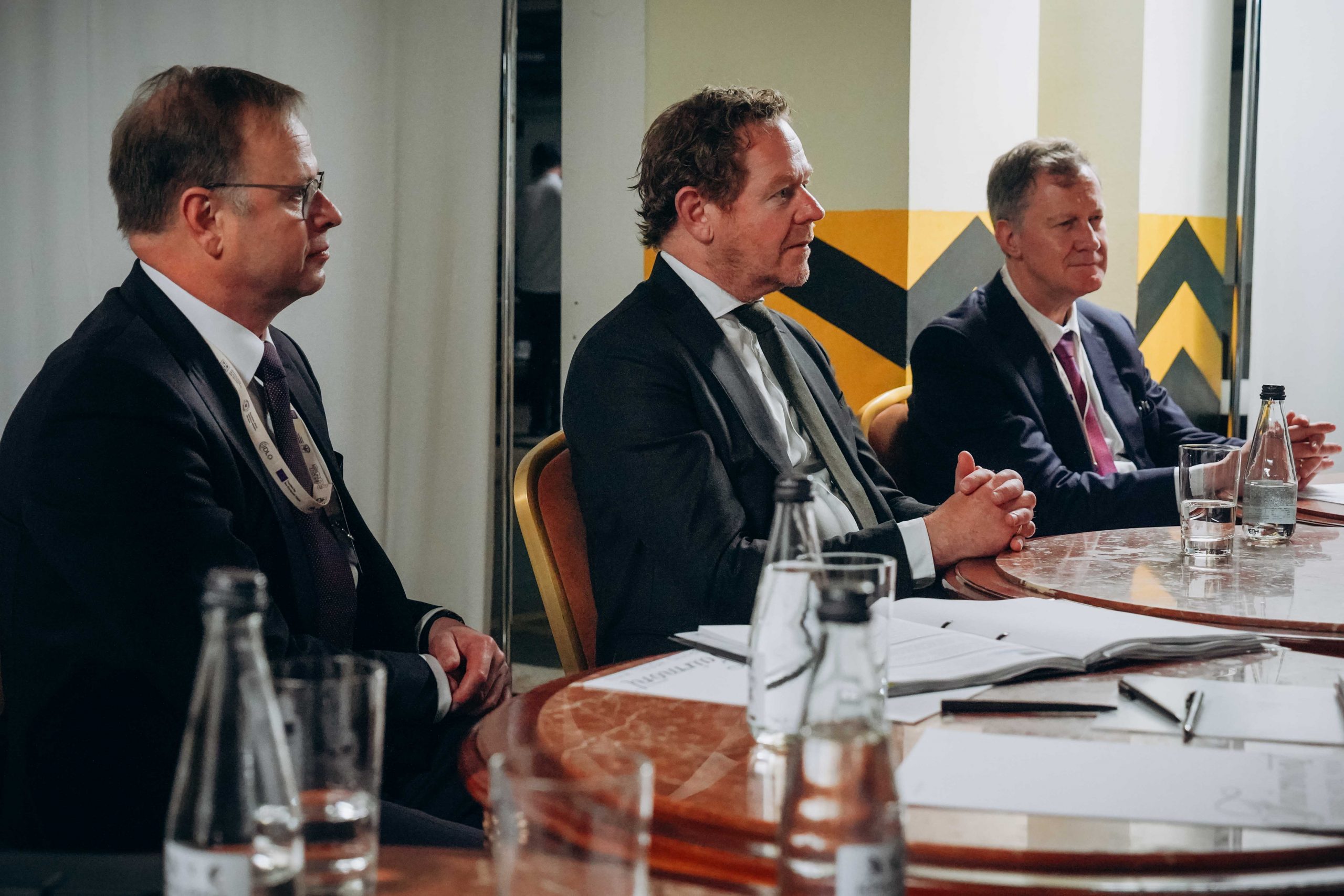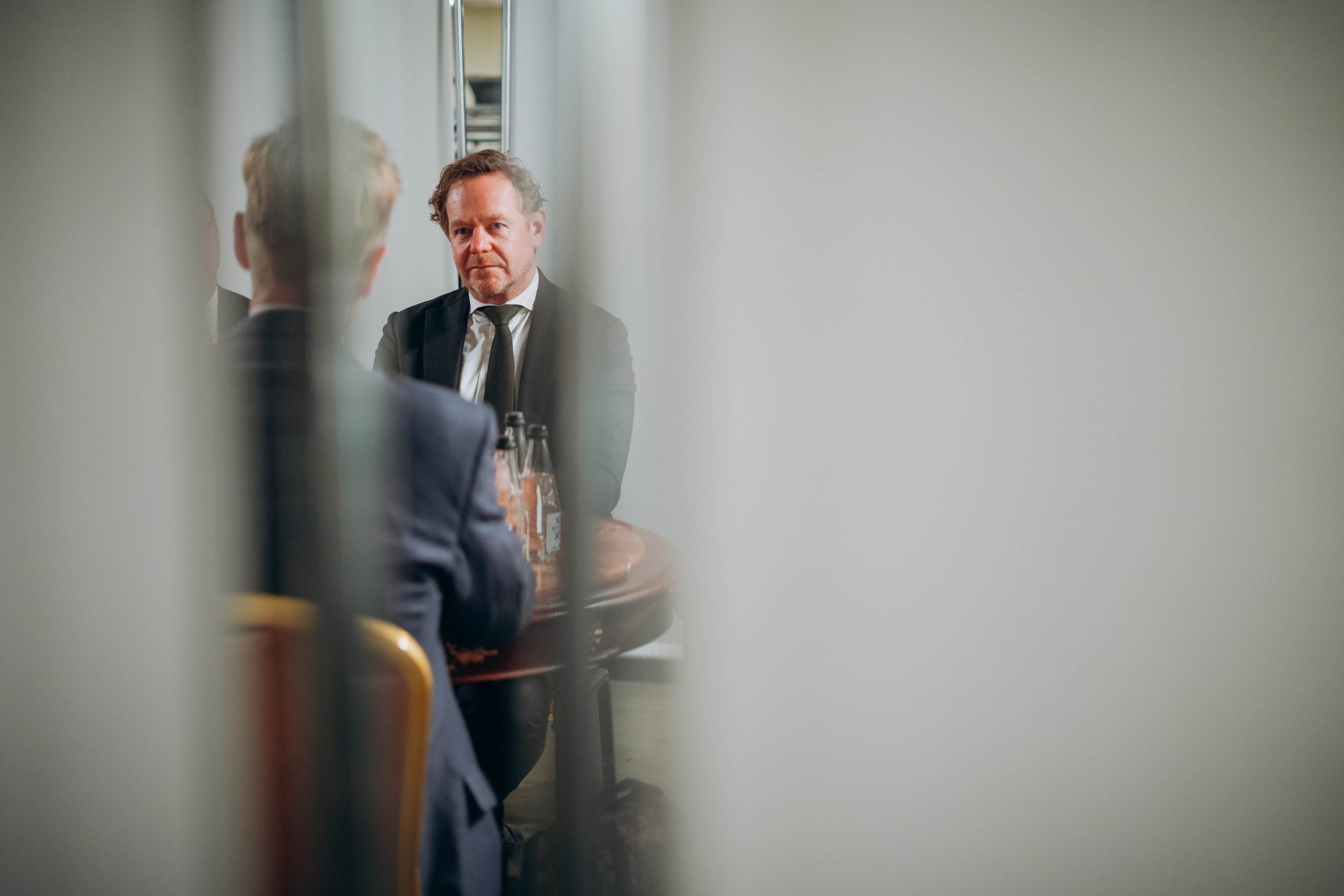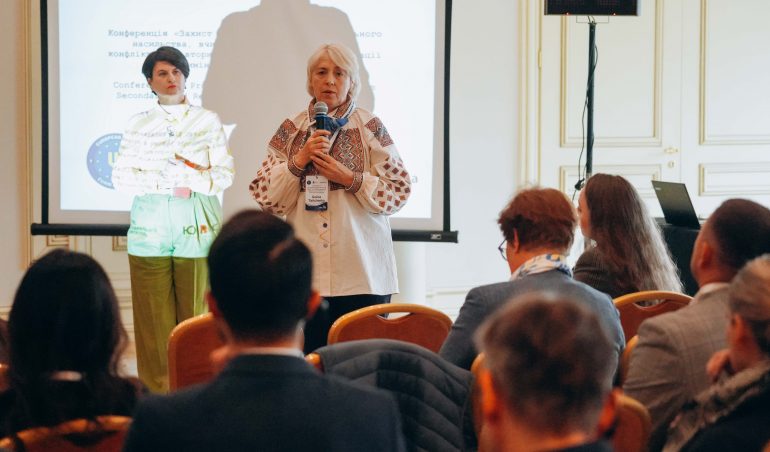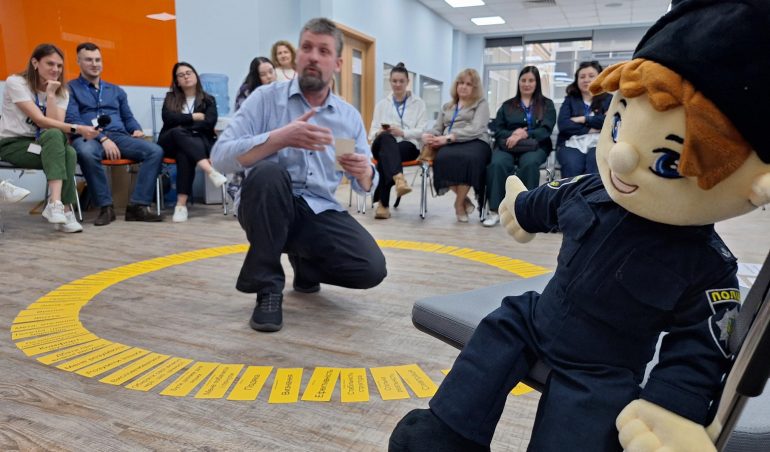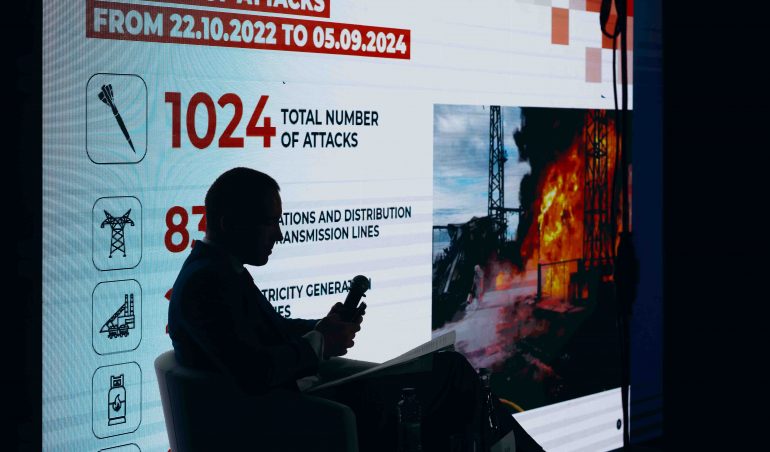“United for Justice. United for Survivors”: Ukraine and International Partners Strengthen Justice for War Crime Victims
May 12, 2025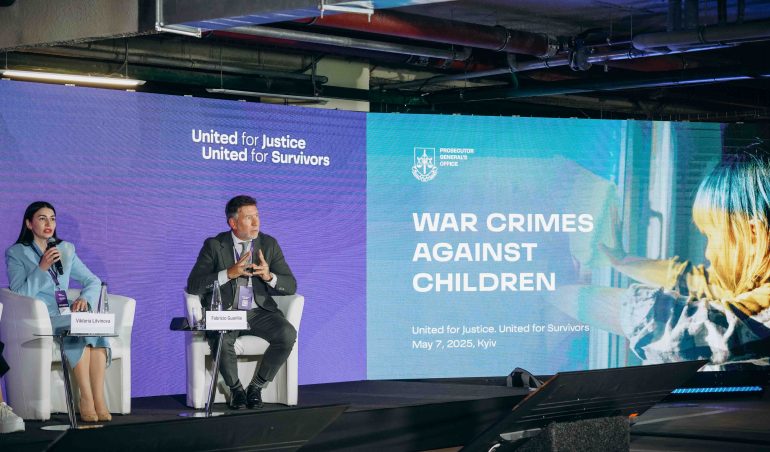
Behind the stark figure of 167,000 registered war crimes in Ukraine lies something that cannot be measured in numbers alone: shattered lives, silenced voices, and families forever devastated. These are the real stories told in broken homes, interrupted childhoods, and in the quiet resilience of those still standing. Every single case is more than just a file with evidence. It is a person with a name, it is a stifled voice, it is a life.
Ensuring that those voices are heard and protected was at the heart of a high-level international event held in Kyiv on 7 May.
The conference “United for Justice. United for Survivors” brought together two international formats — the meeting of the Ministerial Dialogue Group on Accountability for International Crimes and the 8th United4Justice Conference. The aim is clear: to deepen cooperation in investigating international and war crimes committed during Russia’s war of aggression against Ukraine, and to build a sustainable framework of support for victims.
The European Union Advisory Mission Ukraine (EUAM) in its support for the investigation and prosecution of international crimes committed in Ukraine is a key contributor to the United4Justice series of conferences, because it makes it possible to bring together high level international and national decision-makers with high-level experts to firmly set a specific aspect of international crimes on the international political agenda and galvanize support and action. Previous conferences have dealt with aspects such as crimes against children, environmental crimes, crimes against cultural heritage, and attacks on civilian objects.
Hosted by the Office of the Prosecutor General of Ukraine (OPG) and the Government of the Netherlands, this conference convened ministers and prosecutor generals from European countries, international officials, as well as international and Ukrainian prosecutors, human rights defenders, civil society leaders, and representatives of international organisations.
The conference discussed issues such as trauma-informed communication, the protection of child victims, and harmonising national and international legal standards regarding victims’ and survivors’ rights. A recurring theme throughout all discussions was the need to consistently uphold the rights of victims and survivors at every stage of criminal proceedings. In this context, EU best practices and legislation can offer valuable guidance.
Victims’ Rights and EU Integration
As several speakers at the conference noted, victims’ rights form an essential part of the EU body of rules and regulations. The EU’s Victims’ Rights Directive establishes minimum standards for how victims must be treated — with respect, protection, and access to justice. It also obliges states to train all professionals who may interact with victims, ensuring they understand how to meet survivors’ needs with care and sensitivity.
With its unique advisory role, EUAM helps bridge Ukraine’s domestic reforms with European standards and practices. Drawing on the experiences of EU Member States, the Mission provides technical support and practical tools to help Ukrainian institutions embed a victim-centred approach into law enforcement and judicial procedures.
“EUAM has supported the capacity building of law enforcement agencies to work in a more victim centred and trauma informed manner. EUAM training and mentoring bring together Ukrainian partners to discuss further steps and the establishment of new practices. EUAM provides advice and training, and also some of the necessary equipment to the Coordination Center for the Support of Victims and Witnesses under the Office of the Prosecutor General,” EUAM Head of Mission Rolf Holmboe said.
The Mission has supported the Centre since it was established in 2023 by the Office of the Prosecutor General in recognition of the need to support victims through their trauma and in the preparation of the criminal proceedings against the perpetrators.
The Coordination Center for the Support of Victims and Witnesses is a good example of effective cooperation and EU support through EUAM to Ukrainian partners. Today, the Centre is operational in nine regions, providing legal, psychological, social, and medical assistance to those affected by Russia’s aggression — all through a trauma-informed approach.
“Ukraine is transitioning to a system whereby victims are rights holders, with investigators, prosecutors, and judges fully protecting those rights. Victims need assistance at every stage whilst they move through the criminal justice system, particularly the most vulnerable victims such as children, the elderly, and people with disabilities,” Rolf Holmboe underlined.
As the war grinds on, Ukraine continues to investigate and prosecute war crimes in the midst of an ongoing war under extremely hazardous conditions and directly targeted by further Russian attacks. However, Ukraine is not doing so alone – the international community, through missions such as EUAM and other international partners, as well as global justice mechanisms, stands alongside Ukraine in this process.
Justice in this war is more than a legal term. It is the difference between being heard or forgotten. Between impunity or accountability. Between trauma that isolates and support that rebuilds.
The work is far from over. But our collective will remains strong to establish a system that can turn a victim into a survivor into a change agent. United for justice, united for survivors.


